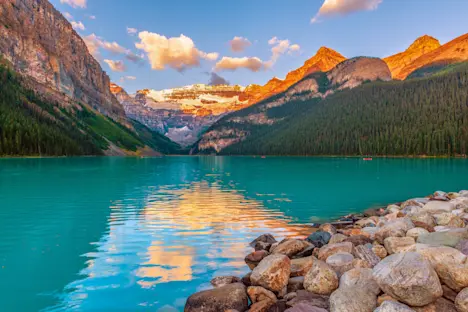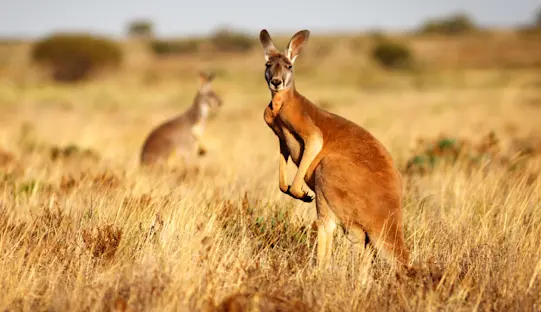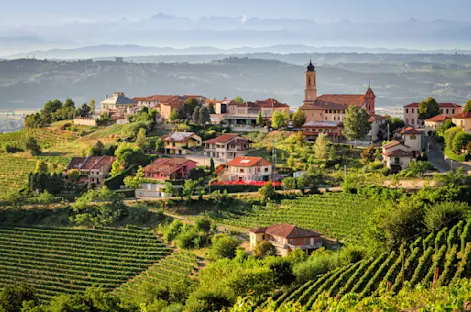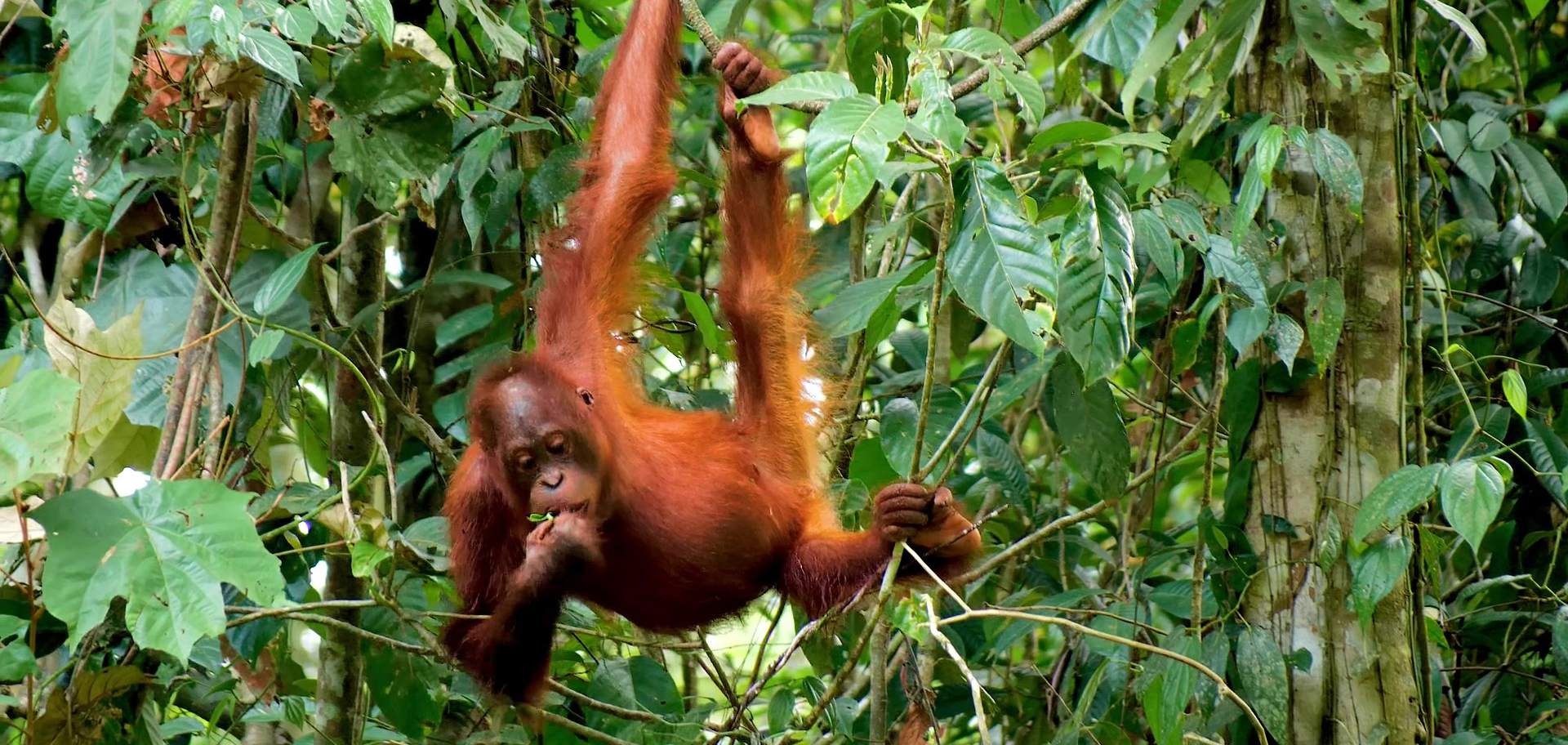For years, wildfires have plagued the landscape of Indonesian Borneo’s Ketapang Regency, threatening its communities and the region’s flora and fauna, which includes proboscis monkeys, pygmy elephants, sun bears and more than 30 varieties of orchids. Indonesia’s already endangered orangutans are especially at risk. In fact, between 2001 and 2022, Ketapang—which is home to one of the country’s largest orangutan populations—lost 3,394 square miles of tree cover, 517 square miles of which were due to fires.
Between January and July 2023 alone, Indonesia’s wildfires resulted in the release of more than 10 million tons of CO2 equivalent. Both the intensity and frequency of these fires are only increasing, spurred on by continuously rising temps and extremely dry seasons, and putting the entire Ketapang Regency in danger. To fight this increased peril, a group of determined women is now taking matters into their own hands.
Power of Mama
Meet The Power of Mama, Borneo’s first-ever group of all-women firefighters. This incredible community-led initiative, established in 2022, is a project of the Yayasan International Animal Rescue Indonesia (YIARI), the Indonesian affiliate of the environmental non-profit International Animal Rescue.
Not only are these women fighting fires in Indonesian Borneo, but they’re also helping protect and restore peatlands, championing wildlife conservation—including orangutans—and empowering local women in the process.
The all-volunteer Power of Mama started with 44 local women—a number that has since increased to 92 women and that continues to grow. All of its members hail from six villages in the island’s Ketapang District. They range in age from 19 to 60 and include many homemakers, as well as a younger generation of women employed outside the home.
YIARI oversees their training, teaching the women how to fight fires, perform daily patrols (often in canoes or using drones in areas that are difficult to access), and give public talks on the dangers of peatland fires.
What Is Peatland?
Peatland is a distinctive type of wetland that consists of large deposits of peat—a soil-like mixture of partly decayed vegetation or organic material that holds water as it accumulates, leaving ground that’s wet and soggy. It’s also an incredible source of carbon storage, helping to mitigate the effects of climate change.
Although peatlands only make up 3% of the global land surface, they store twice as much carbon as all the world’s forests combined. According to the international NGO Human Rights Watch, “Peatlands in Indonesia store an estimated 80 billion tons of carbon, equivalent to approximately 5% of all carbon stored in soil globally.”
But over the last few decades, a large portion of Indonesian Borneo’s tropical peatlands have been drained, dried out and razed to be turned into oil palm plantations. Palm oil is derived from the oil palm fruit and is used in everything from pizza dough and ice cream to detergent and lipstick.
In the process, many local farmers practice a method of slash-and-burn agriculture—chopping down trees and other vegetation to clear their land for palm oil. It’s a practice that the local government allows within areas spanning less than 215,217 square feet, and one that farmers often prefer due to its relatively low cost and speed.
But once peatlands become ignited, they are incredibly hard to extinguish. Fires can smolder underground for months and are often extremely difficult to detect. When peatlands burn, they emit high levels of hazardous gases and particulate matter. They also release a ton of carbon into the air—up to 100 times the amount of carbon as that of a wildfire.
How Wildfires Affect Communities
In addition to destroying the local landscape and wildlife, wildfires close schools, cause increased respiratory infections among the elderly and children and lead to dangerous atmospheric haze and increased death rates.
Smoke from these wildfires weakens immune systems among both humans and wildlife. This includes orangutans, which serve as an “indicator species” since their health and behavior mirror their surrounding environments. A recent study shows that when orangutans breathe in smoke, it impairs their vocalization, which is a primary part of their mating habits.

To avoid these potentially devastating health risks, members of The Power of Mama wear protective masks, spray water hoses from a safe distance, and use motorbikes to navigate lands quickly and efficiently, breathing in as little smoke as possible.
Making Change Through The Power of Mama
Since its inception, The Power of Mama has been bringing change to Indonesian Borneo in more ways than one. However, fire prevention is the core of the organization.
During the dry season, the volunteers patrol Ketapang’s fire-prone areas daily, keeping an eye out for fires and identifying fire hotspots. Throughout the rainy season, the group focuses more on outreach, teaching farmers about ecological diversity, and encouraging them to replace slashing-and-burning agriculture with alternative methods of land clearing, such as using organic fertilizer to make the soil nutrient-rich and enhance the growth of crops.
The Power of Mama also demonstrates how these alternative farming methods can lead to better health and save lives in the process. In November 2023, the women even received Indonesia’s Clean Air Championship Award 2023, a prize given to various groups that go above and beyond in creating clean air for local communities.
Thanks in part to The Power of Mama, Indonesia’s traditional stereotypes of a woman’s role in society are changing as well. In a country where men are typically the providers in the family and women the nurturers, the roles are becoming slightly less defined. Not only are these volunteer firefighters boosting environmental awareness, but this all-women crew is demonstrating their abilities outside the home, breaking down gender barriers within communities, and building up confidence as they go.
It’s a win-win situation—both for the communities that The Power of Mama is protecting and for the women themselves.
Journey into the ancient rainforests of this storied island landscape on Nat Hab’s The Wilds of Borneo: Orangutans and Beyond adventure, which brings travelers face-to-face with orangutans, sun bears, pygmy elephants and more.
































